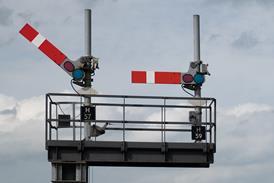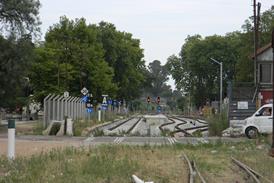INTRO: Analysis of purchasing policies and benchmarking are helping to improve the procurement strategy of European rail operators and infrastructure companies
PHILIP van Beek, Head of Purchasing at Netherlands Railways, has a clear objective in his other role as Chairman of the European Railways Purchasing Conference. Simply put, it is to ensure that Europe’s railway businesses purchase everything they need in the most professional way. Ahead lie the challenges of interoperability and European harmonisation, and van Beek believes it is essential to improve procurement practices quickly.
’We are looking for best practice in procurement policy’, he says, not least because it can save money. Given that the annual spend of ERPC members exceeds €30bn and that ’50% of turnover goes to suppliers’, the potential for savings is considerable.
ERPC grew out of the former Standing Committee on Purchasing (SKB) at the International Union of Railways, where it existed as an informal body originally set up by the national railways of Austria, Germany, Luxemburg and the Netherlands. It was formally re-established as ERPC in January 2004, and since July 2004 it has had the status of a ’Special Group’ within the UIC. The 20 members meet every six months, the objective being to achieve continuous improvement in procurement practice.
Van Beek makes clear that ERPC is ’not a joint purchasing platform. We are not interested in prices - our interest is in the strategy for sourcing.’ Indeed, ERPC is forbidden under EU competition rules from sharing prices, and its activities must conform to the EU’s anti-cartel regulations. Its own rules state that ’any commercial information is to be treated in strict confidence and is not to be promulgated for use in negotiations’.
ERPC is due to elect a new president this month at a meeting in Oslo, but van Beek has already moved a long way towards his goal of making the organisation more professional. As SKB, it had been little more than an informal networking group, but since van Beek’s appointment in 1998 ERPC has changed significantly. A permanent office has been established with Alexander Arsath Ro’is as Secretary-General, suppliers have been invited to make presentations at ERPC meetings, and a start has been made on benchmarking members’ procurement processes.
Drawing on his experience in various purchasing posts at Philips before joining NS in 1997, van Beek first sought to analyse how members carried out procurement. This work quickly established that purchasing departments were being ’torn apart’ because of restructuring and the split between operations and infrastructure, with ’purchasing directors finding it difficult to control the indirect purchasing spend’. Indirect purchasing refers to the widespread hiring of ’consultants, temporary labour, IT hardware and software, cleaning and surveillance services’ and so on.
ERPC concluded that ’consultants with well-known national and international status such as McKinsey, AT Kearney, Accenture, and Booz Allen Hamilton were all consulting and advising their way into the core of the railway business. A lot of money was being spent, and it was clear that for each and every company we were far behind the leaders of other businesses.’ Typically there were ’too many suppliers and too many contracts not negotiated carefully’. The problem was that no single tool was available to provide meaningful comparison of procurement processes.
In 2003, after discussions on benchmarking with the airline KLM and with Virgin Trains in the UK, ERPC decided to make use of a benchmarking and audit process developed by Michigan State University that relied on self-assessment. The technique had been used by major companies such as Philips, Wincor Nixdorf, Johnson & Johnson and other large groups. ERPC has now completed the initial part of the process, with members scoring their own performance for 2004 in 14 areas ranging from in- and outsourcing to supplier partnerships, supplier integration and human resource management. Members were also asked to score their ambitions for 2006.
ERPC found that the results of the exercise indicated trends and developments, although they did not necessarily represent ’the truth’. Van Beek notes that the scores for 2006 suggest that all members are ’very ambitious’. While ’from a scientific point of view the exercise has not taught us very much, from a practitioner’s standpoint it has been very useful and has given us insight into each other’s procurement processes in a non-aggressive manner.’
Van Beek notes that the split between operators and infrastructure managers has shown that two quite different markets have emerged, but still up for discussion is any future involvement of private-sector companies such as open access operators. This will be on the agenda for a future meeting.
Also to be discussed is the possible involvement of railway organisations in eastern Europe, who also stand to benefit from membership. The task of evaluating this for ERPC has been assigned to NedTrain Consulting. The UIC has also asked ERPC to look at helping railways in the Middle East to refine their procurement practices.
CAPTION: Contracts need to be negotiated carefully, says ERPC, noting that better procurement policies can generate significant savings for railway companies
ABOVE: Bulgaria’s Prime Minister attended the signing of Siemens’ Desiro maintenance contract on January 23 (RG 3.05 p162)
BELOW: Handover of a Desec TL70 tracklayer to a customer last year




















